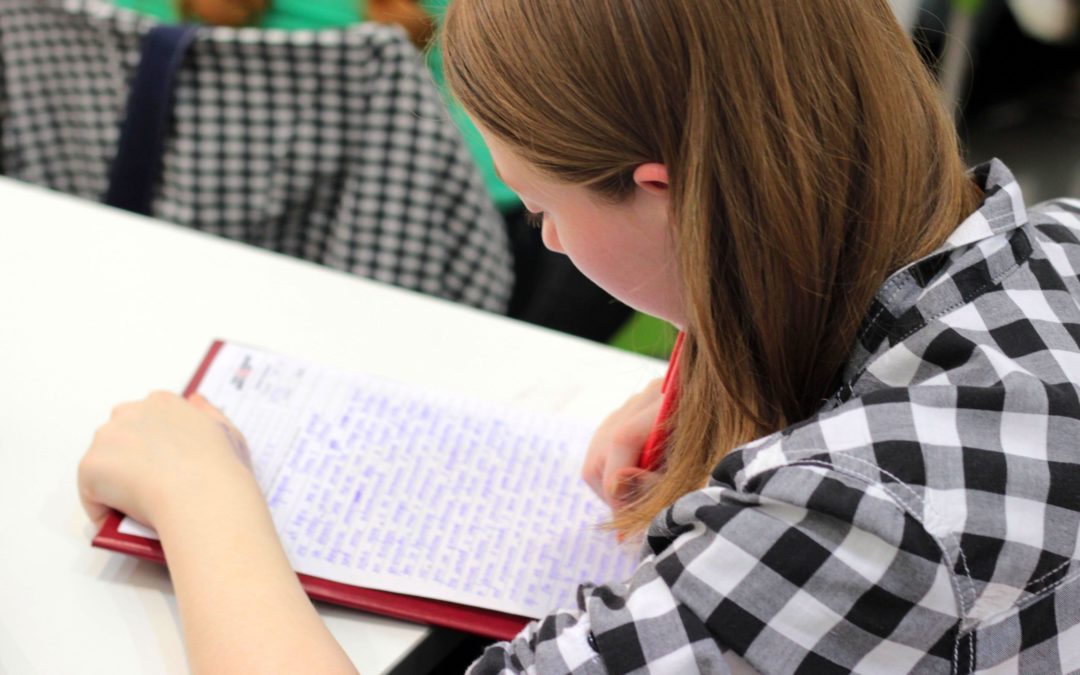If you’re in the International Baccalaureate (IB) Diploma Programme, you already know it’s a ticket to academic prestige. Universities around the world look favourably at IB graduates because the program is known for producing well-rounded thinkers ready to take on global challenges. But before you don that graduation gown, there’s a hurdle you must clear—the IB exams. These tests are no joke. They’re designed to assess not just what you know but also how well you can apply your knowledge in new and challenging contexts.
You might be tempted to bury your head in the sand, especially when you think about balancing six subjects, the Theory of Knowledge (TOK), and your Extended Essay. But don’t lose heart, as your time in the IB Programme has likely already given you a strong foundation to build on as you prepare for your exams. The best IB schools in Singapore have a long-standing reputation for producing high-performing graduates, and those top test results don’t come about by magic. Rather, they’re the happy product of these schools and their students’ shared commitment to academic excellence.
Though your IB exams might seem daunting at first, it’s absolutely possible to leverage what you’ve learned over your two years in the program and set yourself up for success—and this guide will show you how. The ib exam preparation breaks down effective prep into manageable tasks that when tackled diligently, will ensure that you pass with flying colors.
1. Plan Ahead
You wouldn’t start a long road trip without a map, and the same logic applies to your IB exam preparation. Take some time early to prepare for exams to set specific, measurable, achievable, relevant, and time-bound (SMART) goals for each subject. Make sure to check out the minimum ib scores too. Maybe you want to score at least a 6 in your Higher-Level courses, or perhaps you aim to improve your essay-writing skills in English. Write these goals down, as making them tangible will also help you stay accountable for them.
Prioritizing particularly difficult subjects can also make it easier for you to meet all the goals you set, as some subjects will inevitably require more time and mental energy. For example, if you struggle with Math but excel in History, you’ll want to allocate more time to work on mathematical problems. This isn’t to say you should neglect your strong subjects, but focusing your energy where it’s most needed can yield significant dividends.
2. Set a Regular Study Schedule
Consistency is more than a buzzword; it’s a foundational element of effective studying. A set schedule after checking the ib exams 2023 keeps you on track and reduces the stress of cramming, which everyone knows is both unpleasant and ineffective. Begin by assessing how much time you can realistically dedicate to studying each day or week. Next, divide that time among your various subjects, keeping your priorities in mind.
It’s especially effective to stick to studying the same subjects at the same times every day or week. Human brains love routine, and you might find that you start to enter a “study mode” more quickly when you keep a consistent schedule. However, don’t overdo it and pressure yourself into sticking to a routine that turns out not to work for you for whatever reason. If your life circumstances change or you discover that a different schedule feels better, go ahead and adjust. With a bit of trial and error, you’ll definitely find the best possible study routine for you eventually.
3. Study Past Exam Papers
Do you want to know one of the best-kept secrets of top-scoring IB students? They study past exam papers religiously. Have a backup or copy of ib past papers. This method serves multiple purposes. First, it familiarizes you with the format of the questions. No one wants to face an unexpected question type on exam day, and studying past papers can help you feel more in control of the situation. Secondly, it gives you a concrete way to demonstrate your understanding of the subject matter—and under exam conditions, no less.
Don’t just skim through past papers—treat them as you would the real deal. Simulate exam conditions by setting a timer and eliminating any distractions. Once you’ve finished, review your answers critically. This is the time to consult the marking schemes and understand what the examiners are looking for. Don’t worry about finding gaps in your knowledge or skills, as these can help illuminate what to focus on in your study sessions moving forward.
4. Consult with Your Teachers
Let’s face it, teachers have been around the academic block a few times. They’ve seen students succeed, stumble, and everything in between. They know what works and what doesn’t, so take advantage of this resource. Start by attending any review sessions they offer, and actively participate in them. These sessions are usually geared toward reinforcing the topics that are commonly misunderstood or are particularly important for the exams.
If you’re struggling with specific concepts or tasks—say, statistical analysis in Psychology or literary analysis in English Literature—don’t hesitate to request one-on-one time. Teachers can offer nuanced explanations that textbooks or study guides simply can’t match. They’re also familiar with how you work and should thus be able to offer you more personalized advice on how to improve. The best teachers will be just as invested in your success as you are, and they’ll be willing to pull out all the stops needed to get you there.
5. Set Realistic Goals:
Make sure to set achievable goals for each subject. This will help in identifying your strengths and weaknesses, And at the same make your study plan not so hectic. Focus on doing your best, rather than complaining and worrying
6. Practice Healthy Habits
High school students often let their physical health go to the dogs during exam season, often neglecting to eat and sleep properly in favor of more study time, but it’s in fact in your best interest to do the opposite. Incorporating healthy habits like proper nutrition, regular exercise, and good sleep into your exam preparation routine will yield better results when it’s time to take your tests.
A balanced diet rich in nutrients, for instance, can provide the sustained energy you need for prolonged study sessions. Even snacking while you study can be great for your focus and energy levels, provided you skip sugary junk foods and reach for healthier options instead, like fruit or nuts.
There’s no reason to stop at good nutrition, either. Adequate sleep is vital for memory retention and focus, two essential aspects of effective studying. While it’s tempting to pull an all-nighter, particularly as exam time draws near, the detrimental effects on your cognitive abilities can offset any benefits you might gain from the extra study time. And don’t forget about exercise. Even light physical activity, like walking or stretching, can make you more alert and boost your mood, which will ultimately make your study sessions more productive.
7. Study Smart:
Use smart learning techniques by summarizing or explaining concepts to others. The study focussed on enhancing understanding of the concepts and subjects.
Navigating the rigorous landscape of IB exams can be challenging, but it also presents you with a one-of-a-kind opportunity. The skills you hone during this time—resilience, time management, and self-discipline—will come in handy both for taking tests and for thriving in your future endeavours beyond high school. It’s ultimately in your best interest to treat your exam preparation as a training ground for life’s bigger challenges, rather than as a simple sprint toward high scores.
FAQ:
How do I prepare for the IB exam?
Preparing for International Baccalaureate (IB) exams can be a challenging task, but with better planning and strategies, it is possible to excel in the exams.
Is the IB exam tough to crack?
It is a challenging exam, and every student must give their 100% to crack them out.
What are the rules for IB pass?
- There are core components like framing an essay of about 4K words, followed by passing Theory of Knowledge and Creativity-Activity-and-Excellence exams.
- A passing grade of about 1 – 6 grades is all six exams is a must!
- 5 Easy to Prepare Drinks to Help Boost Breast Milk - September 22, 2024
- 50+ Heartfelt Holi Wishes For Your Loved Ones - March 19, 2024
- Holi Games for Kids: Exciting Outdoor and Indoor Activities for a Joyous Celebration - March 19, 2024
- 5 Delicious Best Holi Festival Recipes - March 19, 2024
- Keeping Your Pregnancy Positive - February 26, 2024
- Crafting A Medical School Path: Tips For Parents - January 24, 2024
- Guide To Managing Twin Babies With Ease - January 3, 2024
- 5 Tips To Be A Happy Special Needs Mommy - January 3, 2024
- DIY Ideas To Decorate Kids’ Room - January 3, 2024
- Tips To Use Mindful Parenting In Today’s Time - January 3, 2024














